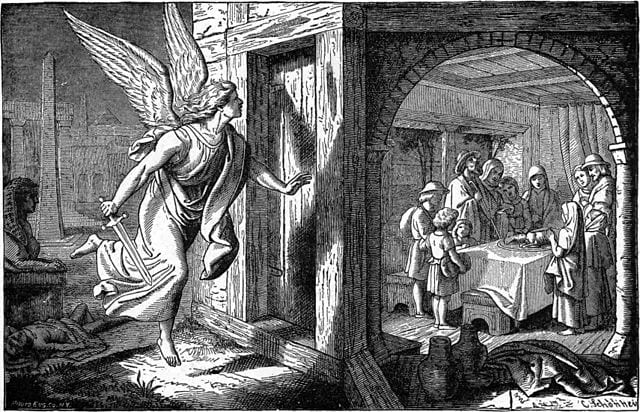
Ward Ricker is an atheist who (as so often) was formerly a self-described “fundamentalist”. He likes to poke holes in the Bible and “prove” that it is a terrible and “evil” book, not inspired, hopelessly contradictory, etc. He put together a 222-page book called Unholy Bible (2019): available for free as a pdf file. It contains 421 couplets of passages that he considers literally contradictory, and 256 more couplets of not technically contradictory but “problem” passages (according to him). Ward wrote in his book: “I . . . am including here only what I consider to be the more firm examples of contradictions. . . . I do not want to include examples that are ‘weak’ and will be easily refuted. I have made my best judgment.”
He issued a challenge for anyone to take on his alleged contradictions. After my first reply, he wrote a 5 1/2 page article suggesting in-depth dialogue. I responded, explaining in depth why I thought dialogue between us would be unfruitful, for many reasons. He then accused me (among other things in his two replies) of “hypocrisy” that “knows no bounds.” This is, of course, against my discussion rules, which forbids such rank insults, so he was promptly banned from my blog, and I replied: “I was exactly right in my judgment that no dialogue was possible. It never takes long for the fangs to come out if they are there.”
But I had already stated: “I may still take on several of your proposed contradictions, just so I can have opportunity to show how very wrong atheist contentions are (which is one thing Christian apologists do).” This series represents that effort. Mr. Ricker can respond on his page as he sees fit. He can still see my posts. His words will be in blue. To search any of this series on my blog, paste “Ward’s Whoppers #” in the search bar on the top right of my blog page. He uses the King James Version for his Bible verses. I will use RSV in my replies.
*****
37.
Exodus 3: 4 And when the LORD saw that he turned aside to see, God called unto him out of the midst of the bush, and said, Moses, Moses. And he said, Here am I. 5 And he said, Draw not nigh hither: put off thy shoes from off thy feet, for the place whereon thou standest is holy ground. 6 Moreover he said, I am the God of thy father, the God of Abraham, the God of Isaac, and the God of Jacob. And Moses hid his face; for he was afraid to look upon God.
Vs:
Luke 20: 37 Now that the dead are raised, even Moses shewed at the bush, when he calleth the Lord the God of Abraham, and the God of Isaac, and the God of Jacob.
Q: Who made the statement that god was the god of Abraham, Isaac and Jacob?
***
I guess, for Ward, if two say the same thing (the second saying what the first told him to say), it is somehow a “contradiction.” Luke tells us that Moses used this phrase, and that he did because God used it of Himself (Ex 3:6; cf. 4:5). How is this contradictory? Nine verses later we see the solution to this bogus alleged “contradiction”:
Exodus 3:15-16 God also said to Moses, “Say this to the people of Israel, `The LORD, the God of your fathers, the God of Abraham, the God of Isaac, and the God of Jacob, has sent me to you’: this is my name for ever, and thus I am to be remembered throughout all generations. [16] Go and gather the elders of Israel together, and say to them, `The LORD, the God of your fathers, the God of Abraham, of Isaac, and of Jacob, has appeared to me, saying, “I have observed you and what has been done to you in Egypt;
So both God and Moses said it. So did Elijah (1 Kgs 18:36), King David (1 Chr 29:18), couriers in Israel and Judah (2 Chr 30:6), Jesus (Mt 22:32; Mk 12:26), St. Peter (Acts 3:13), and St. Stephen (Acts 7:32).
Now, I don’t think anyone is silly enough to make an issue of the “when” in Luke 20:37. Ward could have made an issue of it, but he didn’t. Both in Hebrew usage and in English it can have a very wide latitude: “at that general time” or (in this case) “in the time following God’s appearance in the burning bush” or “when Moses came down from Mt. Sinai after seeing God” being three of them.
41.
Exodus 12: 25 And it shall come to pass, when ye be come to the land which the LORD will give you, according as he hath promised, that ye shall keep this service. 26 And it shall come to pass, when your children shall say unto you, What mean ye by this service? 27 that ye shall say, It is the sacrifice of the LORD’S Passover
Vs:
Numbers 9: 1 And the LORD spake unto Moses in the wilderness of Sinai, in the first month of the second year after they were come out of the land of Egypt, saying, 2 Let the children of Israel also keep the passover at his appointed season. 3 In the fourteenth day of this month, at even, ye shall keep it in his appointed season: according to all the rites of it, and according to all the ceremonies thereof, shall ye keep it. 4 And
Moses spake unto the children of Israel, that they should keep the passover. 5 And they kept the passover on the fourteenth day of the first month at even in the wilderness of Sinai
Q: When were the Israelites to begin observing the Passover?
***
The answer is: when they were in Egypt, at the time that Moses declared that “all the first-born in the land of Egypt shall die” (Ex 11:5); shortly before the exodus out of Egypt. The Exodus 12 passage above is right after that. Moses states:
Exodus 12:2, 6, 14 “This month shall be for you the beginning of months; it shall be the first month of the year for you. . . . [6] and you shall keep it until the fourteenth day of this month, when the whole assembly of the congregation of Israel shall kill their lambs in the evening. . . . [14] “This day shall be for you a memorial day, and you shall keep it as a feast to the LORD; throughout your generations you shall observe it as an ordinance for ever.”
So that was both the beginning of the observance of it, and also the beginning of the command to perpetually observe it every year. Numbers 9 is simply Moses reiterating what he had taught (repetition being a great teaching tool). He taught it in Egypt, and then when the time of Passover came around in the second year, as they were in the wilderness, he emphasized it again; in effect, saying, “hey guys, remember that Passover thing we did in Egypt? We’re gonna do it every year, even while we are in the wilderness.”
Ward is insinuating that Exodus 12 teaches that the holy day would be observed when they got to the promised land, which was forty years later. But that makes no sense because earlier in the chapter he implemented it while they were still in Egypt. All Exodus 12:25 is saying is that they should continue to observe the holy day when they get to Israel or (at that time) Canaan: the promised land. Where’s the beef? Does Ward wish to argue that “keep” in Exodus 12:25 means “initiate” / “begin” / “commence” or suchlike?
The word for “keep” in Hebrew is shamar (Strong’s word #8104). It has a wide latitude of meaning, including “guard, protect, attend to, observe, preserve, retain, protect, and reserve”: many of which are perfectly harmonious with what I just explained: a continued observance of Passover in Israel: not the beginning of it.
Context is almost everything in Bible interpretation. So atheists wanna claim that Exodus 12:25 “proves” that a yearly observance of Passover was to begin in Israel: 40 years after the first observance of it occurred in Egypt? Okay, then what sense does it make that the previous verse states: “You shall observe this rite as an ordinance for you and for your sons for ever”?
Moses taught his people this in the land of Egypt, as God had commanded him (Ex 12:1), instructed “all the elders of Israel” (Ex 12:21-27), and “Then the people of Israel went and did so; as the LORD had commanded Moses and Aaron, so they did” (Ex 12:28). And then in the next verse he is supposedly saying that it would begin in Israel? I don’t think so. That’s insane asylum exegesis.
Three reputable Bible translations particularly bring out the precise meaning of “keep” / shamar in Exodus 12:25:
Moffatt And when you come to the land that the Eternal will give you, as he has promised, you must keep up this worship;
New American Bible Thus, you must also observe this rite when you have entered the land which the LORD will give you as he promised.
Knox’s Revised Vulgate When you reach the land which the Lord will give you in accordance with his promise, you are to keep these ceremonies alive;
Thus collapses one of the dumbest, stupidest alleged biblical contradictions that I’ve seen yet, and it’s a lot that I have already dealt with, believe me. Where do these people get off thinking they are so vastly intellectually superior to us Christians, when they repeatedly show themselves unable to read simple English, in context, with a logical, common sense application (not to mention even the slightest acquaintance with the Hebrew and Greek words involved, and Hebrew thinking)? It’s embarrassing to observe. I truly pity and feel sorry for them.
Only a “senseless” and “darkened” mind (Rom 1:21) can engage in such shoddy pseudo-“reasoning” in the service of spreading falsehoods about and tearing down God’s holy and inspired revelation. I don’t claim it is deliberate lying (I want to always remain as charitable as I can), but it’s analysis so sullied by hostility and the irrational “hardening” of continued undue skepticism, that the result is the same.
***
Photo credit: The Angel of Death and the First Passover: Illustration from the 1897 Bible Pictures and What They Teach Us: Containing 400 Illustrations from the Old and New Testaments: With brief descriptions by Charles Foster [public domain / Wikimedia Commons]
***













